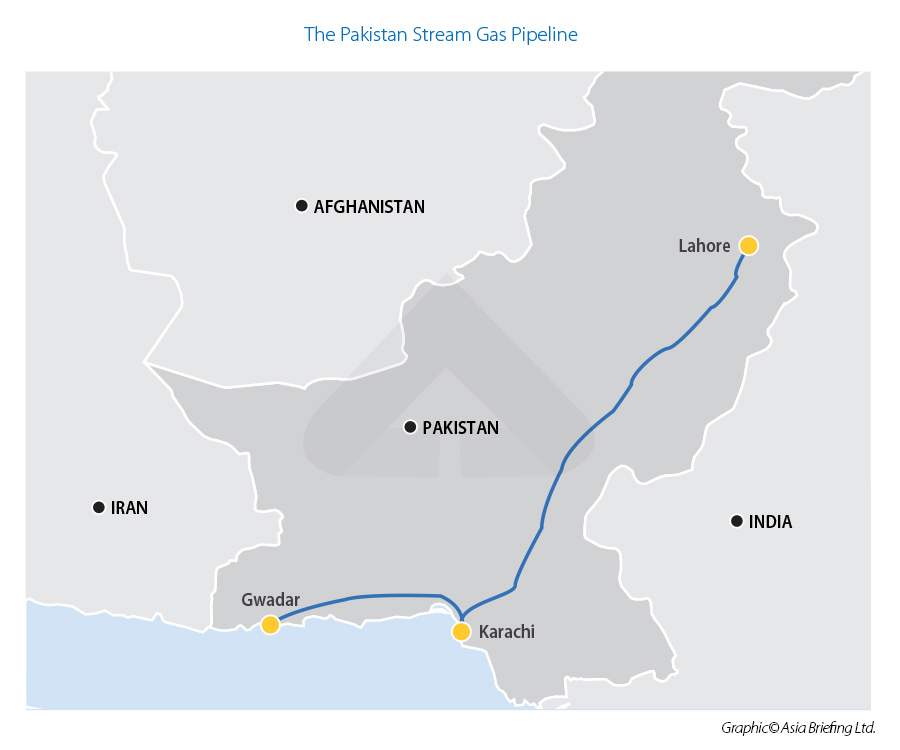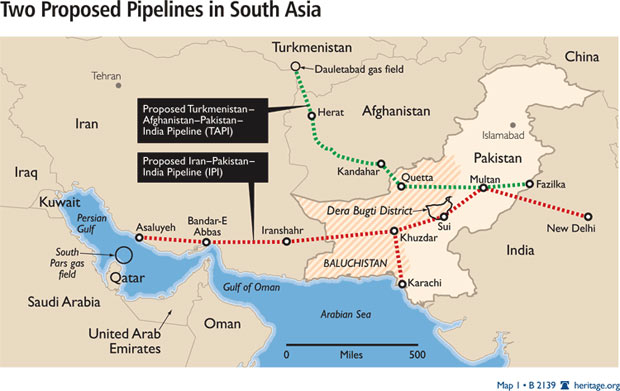www.aljazeerah.info
Opinion Editorials, March 2022
Archives
Mission & Name
Conflict Terminology
Editorials
Gaza Holocaust
Gulf War
Isdood
Islam
News
News Photos
Opinion Editorials
US Foreign Policy (Dr. El-Najjar's Articles)
www.aljazeerah.info
Pakistan Stream Gas Pipeline After the Russian Invasion of Ukraine By Haneea Isaad and Simon Nicholas Dawn, Pakistan, March 5, 2022 |
|
 |
 |
|
Pakistan Stream Gas Pipeline |
|
After the Invasion
THE unfortunate timing of Prime Minister Imran Khan’s visit to Russia received plenty of attention as the Ukraine crisis continued to build. As it turned out, the timing was worse than some had feared — Russia’s invasion of Ukraine started (when) the PM was in Moscow. The main reason behind his visit was to advance the Pakistan Stream Gas Pipeline. This long-delayed multibillion-dollar project aims to transport imported LNG from the southern part of the country to major demand centres in the north.
The irony of the visit is that the project’s delay was partly due to Western sanctions following Russia’s annexation of Crimea in 2014. Pakistan asked a company previously attached to the project, a subsidiary of the Russian state-owned tech giant Rostec, to be replaced after it came under sanctions. Following the invasion, the pipeline is at severe risk of further delays following the significantly greater sanctions now imposed on Russia.
In addition, LNG prices are already rising following the invasion, questioning the sense of further LNG infrastructure investment in Pakistan. The two countries signed an initial project agreement on the pipeline in 2015, with Russia providing almost 85 per cent of the financing and operating the pipeline for 25 years. However, the deal couldn’t go forward as planned, as the two countries continued to debate the exact terms of the agreement.
As a result, in May 2021, an amendment to the original Intergovernmental Agreement was signed between the two parties, whereby the project financing structure of the project was significantly changed. Pakistan now holds a 74pc stake in the project, while Moscow holds the remaining 26pc. Pakistan’s stake will be owned by the Sui Gas and Sui Northern Companies; while Russia’s interests will be represented by a consortium of the Eurasian Pipeline Consortium (a company with links to Vladimir Putin), the state-controlled Tsentr Ekspluatatsionnykh Uslug, and the steel pipe maker Trubnaya Metallurgicheskaya. The pipeline will be 1,100 kilometres long, have a transportation capacity of 12.4 billion cubic meters, and could cost anywhere between $2bn and $3bn.
The proposed LNG pipeline makes even less sense.
As tensions escalate between Russia and the West, Pakistan finds itself in an awkward position. After Russia invaded Ukraine, Germany put a hold on the Nord Stream 2 pipeline, while other European nations and the US responded by imposing restrictions on the Russian banking sector. Global oil and gas markets have reacted to the political tensions in turn, as Brent Crude achieved a high of almost $100 per barrel, and Asian LNG prices surged more than 50pc to once again approach $40 per metric million British thermal units.
Despite the extreme circumstances, such LNG price surges are no longer unusual. Two major price spikes were experienced during 2021, and global LNG prices were expected to remain high even before the invasion of Ukraine.
As global LNG prices respond to the economic sanctions imposed on Russia, the feasibility of the gas pipeline becomes even more questionable, as Pakistan and Russia are yet to agree on a pricing formula for the gas transportation tariff. If imposed on any of the Russian partners in the deal, the sanctions themselves could lead to even further delays in the pipeline construction. The negotiations for the project haven’t been easy so far, as issues of land acquisition and sovereign guarantees become sticking points for the two parties.
In particular, the future of gas and LNG faces a lot of uncertainty in Pakistan. The two existing LNG terminals are reportedly underutilised, leading to the build-up of unsustainable capacity payments. Pakistan has been consistently having difficulty meeting its LNG demand in the winter months, as ENI and Guvnor continue to default on their commitments and fail to deliver term cargoes. The price volatility of the spot market makes it economically prohibitive to procure the fuel at such exorbitant prices, and a shift towards furnace oil has been observed in the industrial and power sectors.
Is it prudent then to bring on more LNG infrastructure such as the Pakistan Gas Stream Pipeline?
Pakistan’s new National Electricity Policy, 2021, makes it very clear that “The generation mix for the sector shall gradually reduce reliance on imported fuels.” Even the power division’s long-term energy plan — the Indicative Generation Capacity Expansion Plan — predicts the utilisation of all imported LNG-based generation to fall to zero by 2030.
Even if global economic sanctions on Russia don’t already jeopardise the future of the pipeline project, the price volatility around LNG and the risk of stranded assets could reduce the feasibility of such projects. It, therefore, makes no sense to continue investing in expensive LNG infrastructure. When that infrastructure is to be built by entities from a pariah state that is under heavy sanctions, it makes even less sense.
The writers are energy finance analysts at IEEFA.
After the invasion - Newspaper - DAWN.COM
***
Energy Cooperation in Focus During PM Imran's Meeting with Russian President Putin
Dawn.com
| Naveed SiddiquiPublished February 24, 2022
Prime Minister Imran Khan, who is on a two-day visit to Moscow, held a meeting with Russian President Vladimir Putin on Thursday during which the premier reaffirmed the importance of the Pakistan Stream gas pipeline as a flagship economic project between the two countries, his office said.
The Kremlin issued a brief statement, saying that the two leaders discussed the main aspects of bilateral cooperation and exchanged views on current regional topics, including developments in South Asia.
In a handout, the Prime Minister's Office (PMO) said that the two leaders held wide-ranging consultations on bilateral relations as well as regional and international issues of mutual interest.
"Recalling the telephone conversations during the recent months between the two leaders, the prime minister expressed confidence that the positive trajectory of bilateral relations will continue to move forward in the future," the handout issued late on Thursday said.
PM Imran expressed the hope that the trust and cordiality marking the relationship would translate into further deepening and broadening of mutual cooperation in diverse fields.
He also reaffirmed the importance of the Pakistan Stream gas pipeline as a flagship economic project between the two countries and also discussed cooperation on prospective energy related projects.
"The prime minister underscored Pakistan’s commitment to [forging] a long-term, multi-dimensional relationship with Russia," the PMO said.
During the meeting, PM Imran also underlined the need for addressing the humanitarian crisis in Afghanistan and preventing a potential economic meltdown in the war-torn country.
"The prime minister reiterated that Pakistan would continue to work with the international community for a stable, peaceful and connected Afghanistan. In this regard, he underscored the ongoing cooperation and coordination between Pakistan and Russia at various international and regional fora, including the Shanghai Cooperation Organisation."
In regard to South Asia, the prime minister highlighted the human rights violations in Indian Illegally Occupied Jammu and Kashmir (IIOJK) and underscored the need for a peaceful resolution of the issue.
"The prime minister also highlighted the developments detrimental to regional peace and stability and stressed the need for measures that would help keep the regional balance," the statement said.
According to the PMO, PM Imran "regretted" the latest situation between Russia and Ukraine and said that Pakistan had hoped "diplomacy could avert a military conflict".
"The prime minister stressed that conflict was not in anyone’s interest and that developing countries were always hit the hardest economically in case of conflict. He underlined Pakistan’s belief that disputes should be resolved through dialogue and diplomacy."
The premier also expressed concern about rising extremism and Islamophobia in the country and stressed the need for interfaith harmony and coexistence.
"Appreciating President Putin’s understanding of the respect and sensitivities that the Muslims attach to the Holy Prophet (Peace Be Upon Him), the prime minister said that interfaith harmony and respect for all religions was imperative for peace and harmony within and among societies," the PMO said.
After the meeting with Putin concluded, Russia's Deputy Prime Minister Alexander Novak and Energy Minister Nikolay Shulginov called on the premier along with a delegation.
Earlier today, PM Imran laid a floral wreath at the Tomb of the Unknown Soldier in Moscow in a tribute to the casualties of World War II.
'PM to return to Pakistan as per schedule'
Before the meeting between PM Imran and Putin, Information Minister Fawad Chaudhry — who is part of the Pakistani delegation in Moscow — confirmed that the premier was on his way to meet President Putin, debunking "speculation" regarding the premier's visit being cut short amid Ukraine-Russia tensions.
The information minister also said the premier's "visit is proceeding and that he would return to Pakistan tonight as per schedule".
Chaudhry's clarification came after a report by Associated Press claimed that the prime minister was ending his Moscow trip.
According to Dawn News correspondent Adil Shahzeb, who is currently in Moscow, the PM's "important meeting" with Putin was extended to three hours, which was earlier scheduled for an hour.
PM Imran arrived in Moscow yesterday on a two-day official visit, where he was greeted by Russian Deputy Foreign Minister Igor Morgulov upon his arrival. He was also presented a guard of honour.
Qureshi meets Lavrov
Meanwhile, Foreign Minister Shah Mehmood Qureshi met his Russian counterpart Sergey Lavrov in Moscow as both the leaders reaffirmed their commitment to further strengthen bilateral relations between the two countries, according to a statement from the Foreign Office.
Qureshi said Pakistan attaches special importance to bilateral relations with Russia. He said relations between Pakistan and Russia have gradually strengthened.
Foreign Minister Shah Mehmood Qureshi along with other officials hold a meeting with his Russian counterpart in Moscow on Thursday. — Picture via Foreign Office
"Pakistan pursues economic priorities and promotes regional ties in the light of PM Imran Khan's vision," Qureshi told his Russian counterpart.
Lavrov congratulated Qureshi and Pakistani leadership on the success of the OIC's Council of Foreign Ministers on Afghanistan held in Islamabad in December last year and also expressed best wishes regarding the upcoming meeting of the OIC Council of Foreign Ministers in Islamabad next month.
The last Pakistani premier to visit Russia was Nawaz Sharif in March 1999, while former president Asif Ali Zardari came to Moscow in 2011.
PM Imran's visit is viewed by many in and outside Pakistan with much anticipation though the Pakistan government terms it a prelude to greater relationship in strategic, energy and regional connectivity.
The timing of the visit has been discussed threadbare but top Pakistani government officials term it one of the rarest opportunities for the energy-starved country to make headway in energy, regional connectivity and role in Afghanistan post US withdrawal.
National Security Adviser Moeed Yusuf, however, had rejected the notion about the timing of the visit. “Yes there is a global tension but our visit is of bilateral nature and the similar path was taken in the visit to China where economy, economic indicators and connectivity was at the heart of that tour,” he had said.
Energy cooperation in focus during PM Imran's meeting with Russian President Putin - DAWN.COM
***
Share the link of this article with your facebook friends
|
|
|
|
||
|
||||||




